Mobile at Mozilla
Margaret Leibovic @mleibovic
4 December 2012
Margaret Leibovic @mleibovic
4 December 2012
Mozilla's mission is to promote openness, innovation and opportunity on the web.
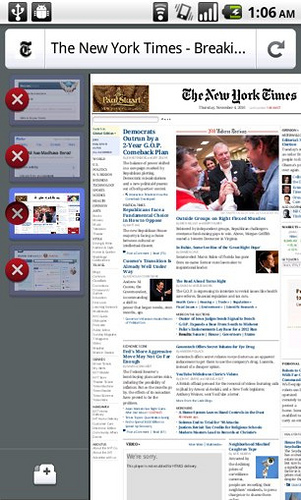
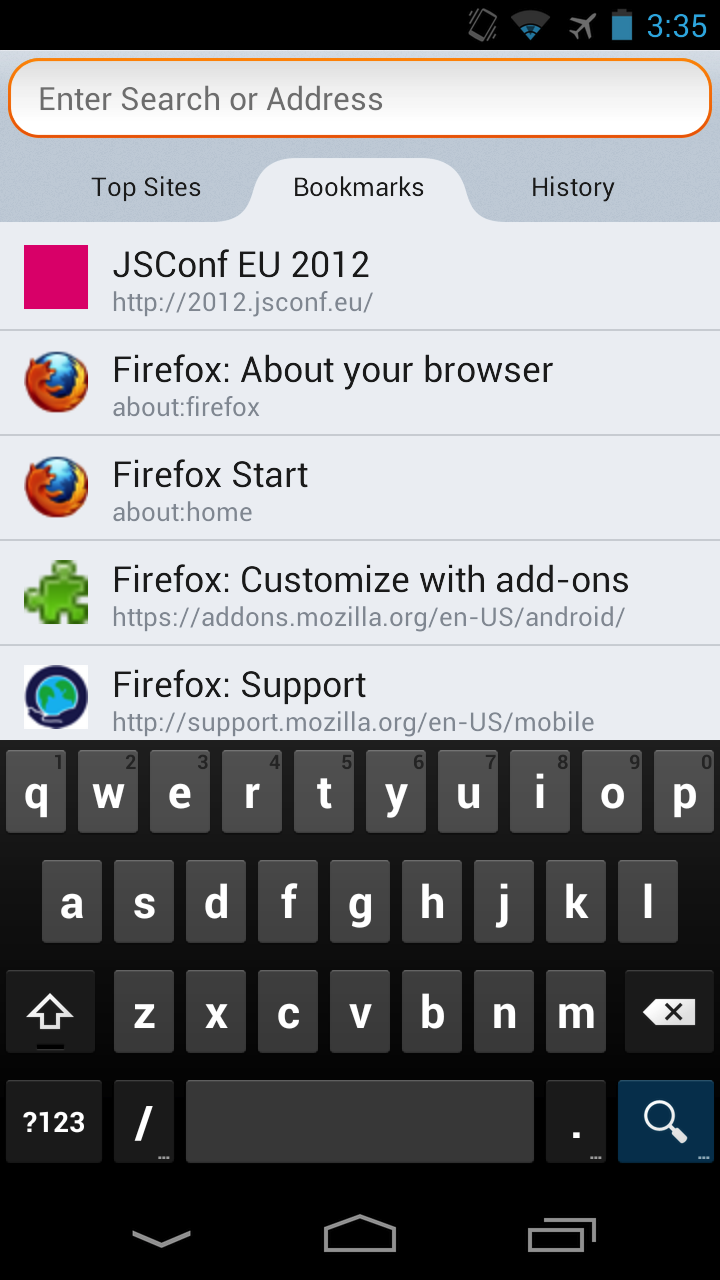
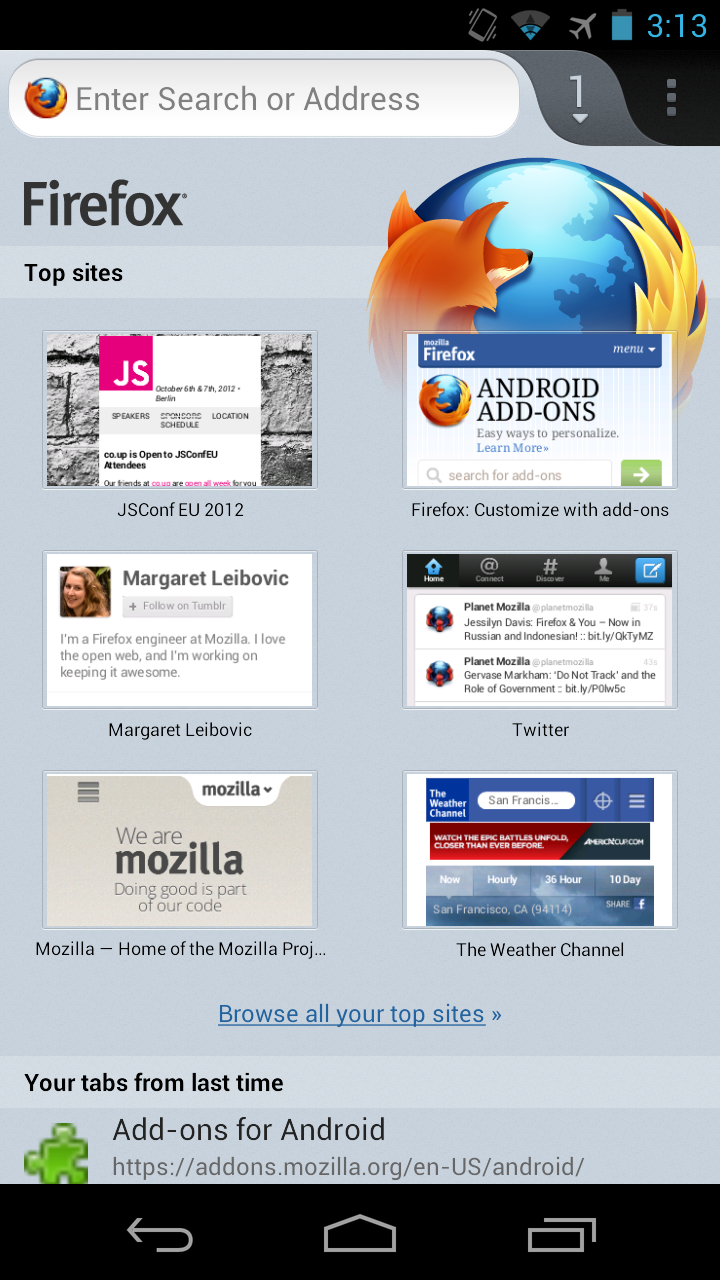

Create a GeckoEvent in Java:
GeckoEvent e = GeckoEvent.createBroadcastEvent("my-event", "data");
GeckoAppShell.sendEventToGecko(e);
Add an observer in JS:
Services.obs.addObserver(observer, "my-event", false);
function observer(aSubject, aTopic, aData) {
// Do some stuff
};
Create a JSON message in JS:
let message = {
gecko: {
type: "another-event", ...
}
};
sendMessageToJava(message);
Register a listener in Java:
GeckoAppShell.registerGeckoEventListener("another-event", listener);
GeckoEventListener listener = new GeckoEventListener() {
public void handleMessage(String event, JSONObject message) {
// Do some stuff
}
}

In Java, use an Android API to listen for a back button press:
@Override
public void onBackPressed() {
GeckoEvent e = GeckoEvent.createBroadcastEvent("Session:Back", "");
GeckoAppShell.sendEventToGecko(e);
}
In JS, use a Gecko API to navigate back in session history:
Services.obs.addObserver(handleBackPressed, "Session:Back", false);
function handleBackPressed(aSubject, aTopic, aData) {
BrowserApp.selectedBrowser.goBack();
};
Listen for DOMTitleChanged events in JS, and pass them along to Java:
Tab.prototype = {
create: function(...) {
this.browser.addEventListener("DOMTitleChanged", this, true);
},
handleEvent: function(aEvent) {
let message = {
gecko: {
type: "DOMTitleChanged",
tabID: this.id,
title: aEvent.target.title }
}
sendMessageToJava(message);
}
}
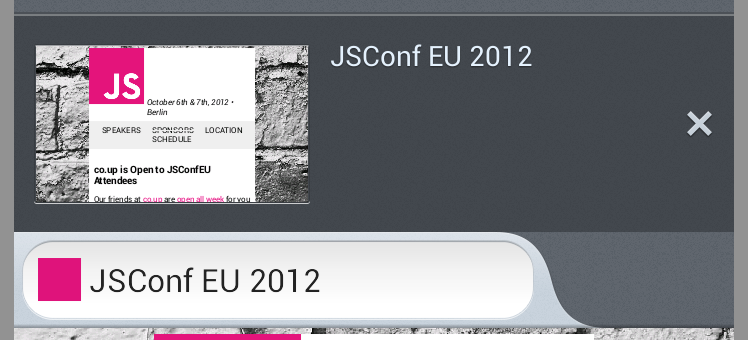
Update the tab's title in the native Java UI:
GeckoAppShell.registerGeckoEventListener("DOMTitleChanged", listener);
GeckoEventListener listener = new GeckoEventListener() {
public void handleMessage(String event, JSONObject message) {
int tabId = message.getInt("tabID");
Tab tab = Tabs.getInstance().getTab(tabId);
String title = message.getString("title");
tab.updateTitle(title);
}
}
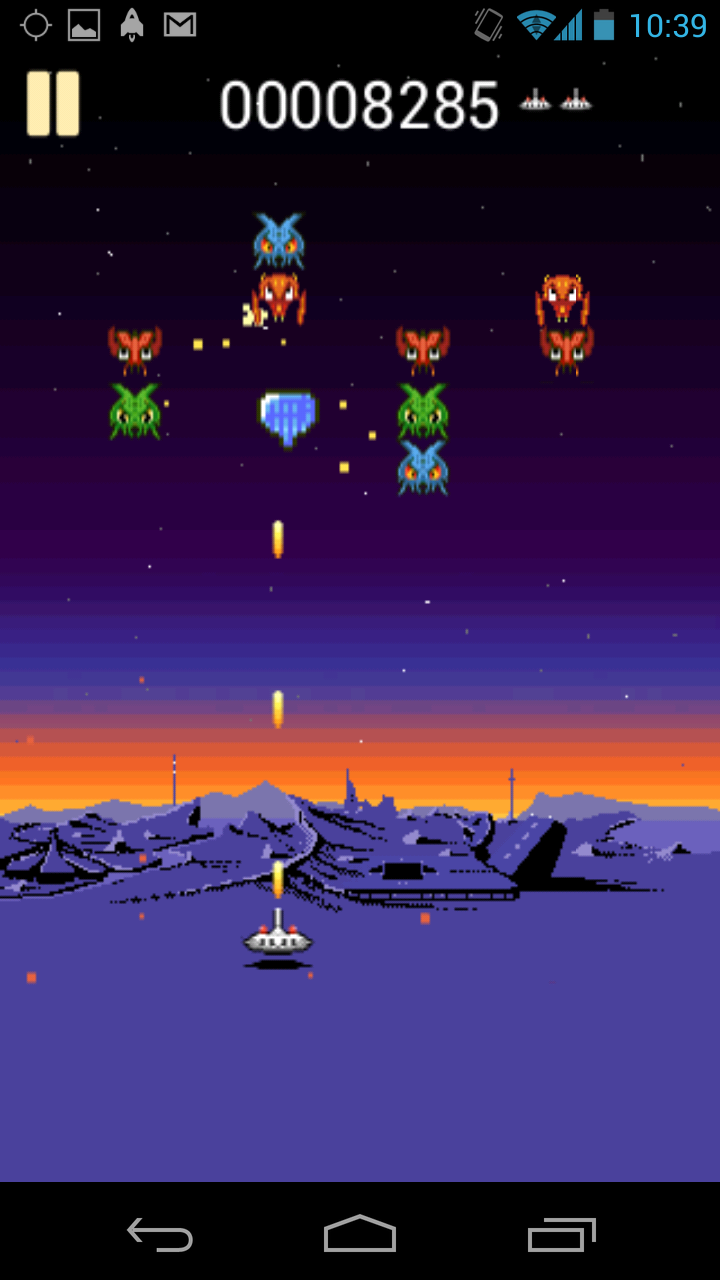
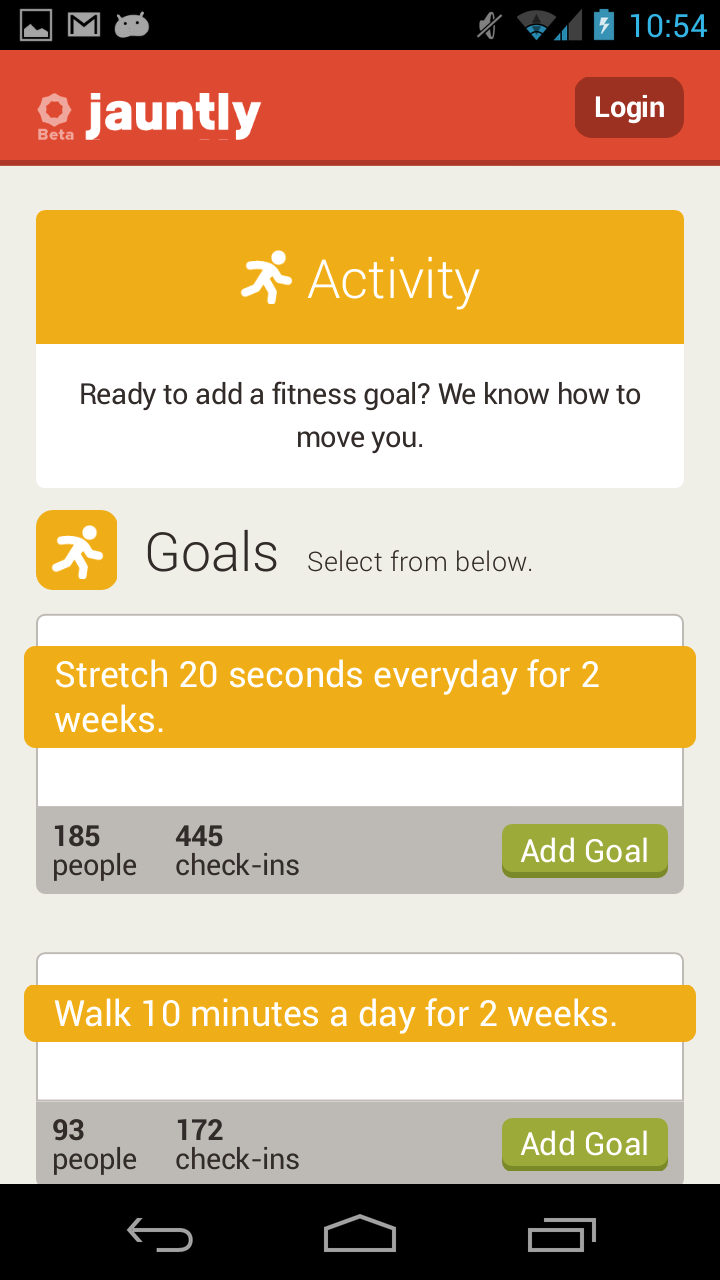
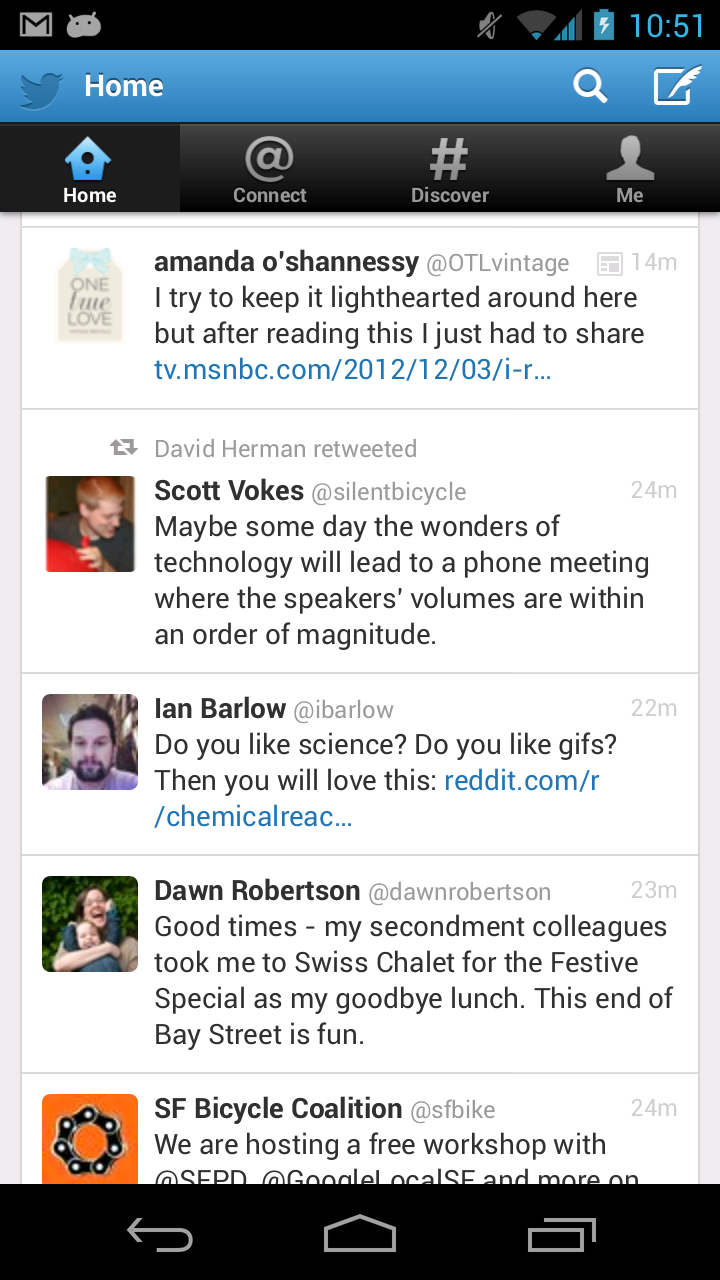
An Open Web App manifest contains information that lets the browser interact with the app
{
"name": "My App",
"description": "My elevator pitch goes here",
"launch_path": "/",
"icons": {
"128": "/img/icon-128.png"
},
"developer": {
"name": "Your name or organization",
"url": "http://your-homepage-here.org"
},
"default_locale": "en"
}
To self-publish an app from a page that you control, you can trigger installation of the app
// Request to install an Open Web App
var request = window.navigator.mozApps.install(manifestUrl);
request.onsuccess = function() {
// Save the App object that is returned
var appRecord = this.result;
alert('Installation successful!');
};
request.onerror = function() {
// Display the error information from the DOMError object
alert('Install failed, error: ' + this.error.name);
};
You can also install apps from the Firefox Marketplace
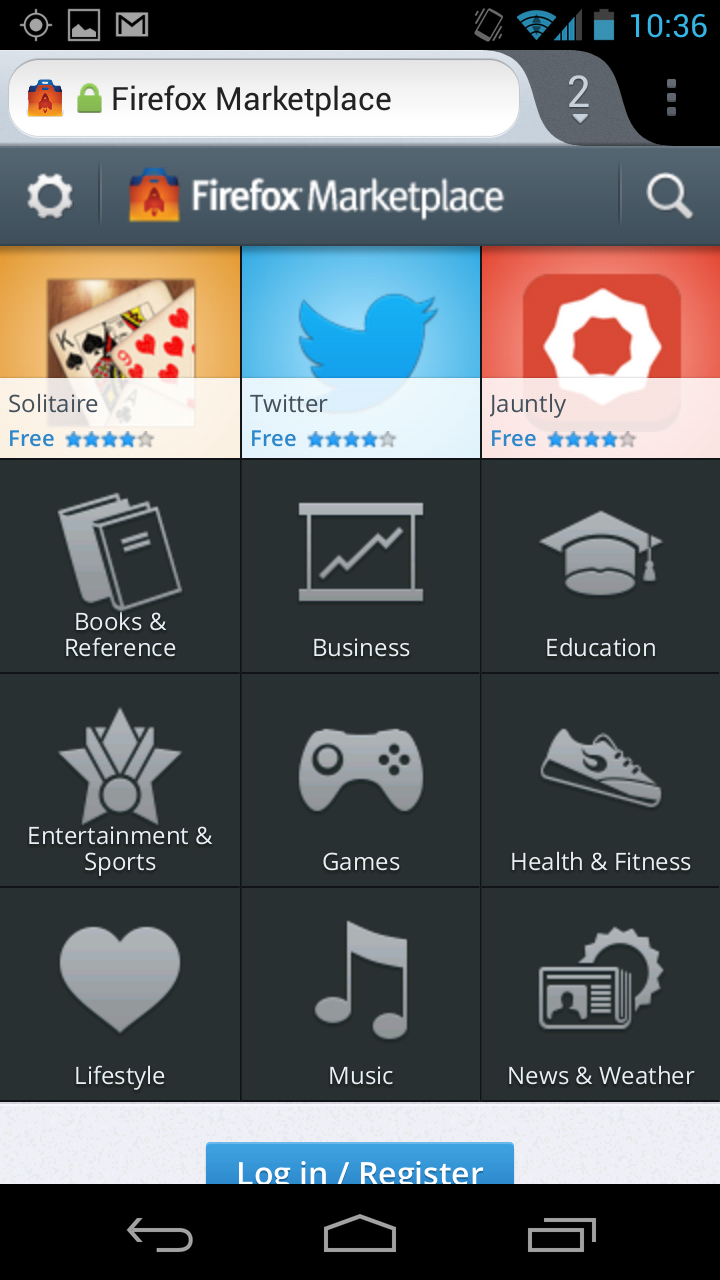
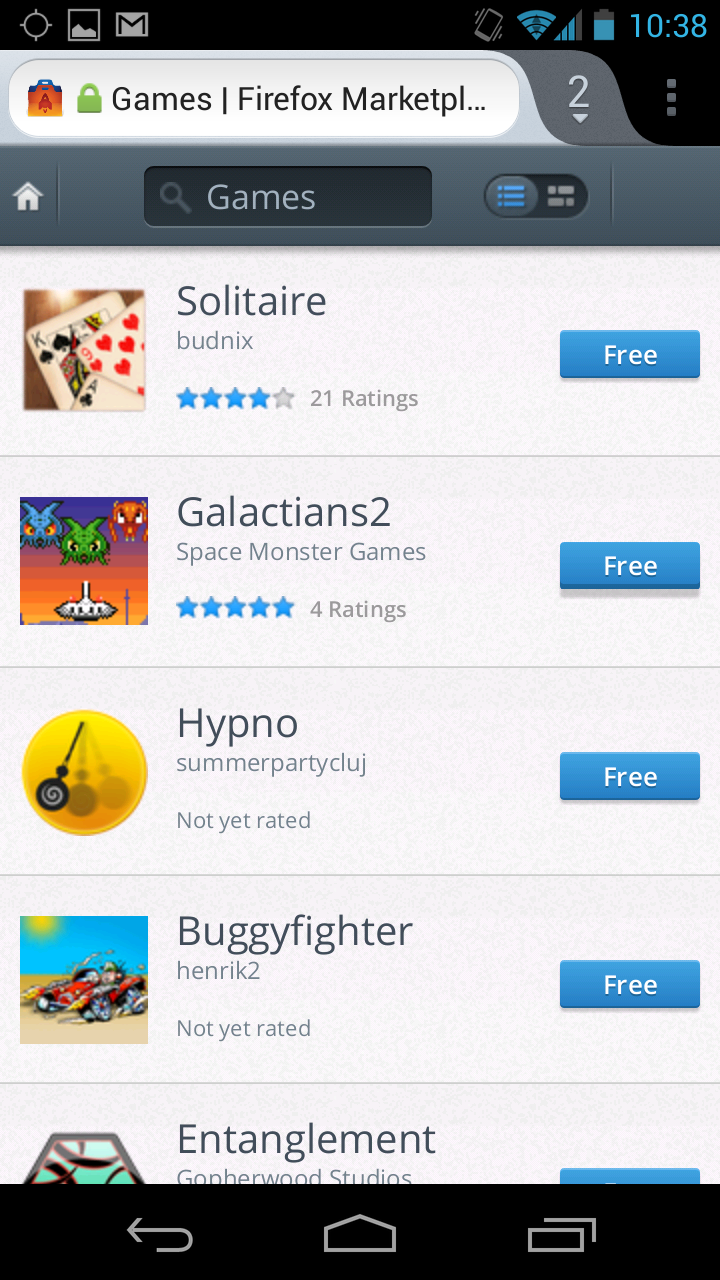
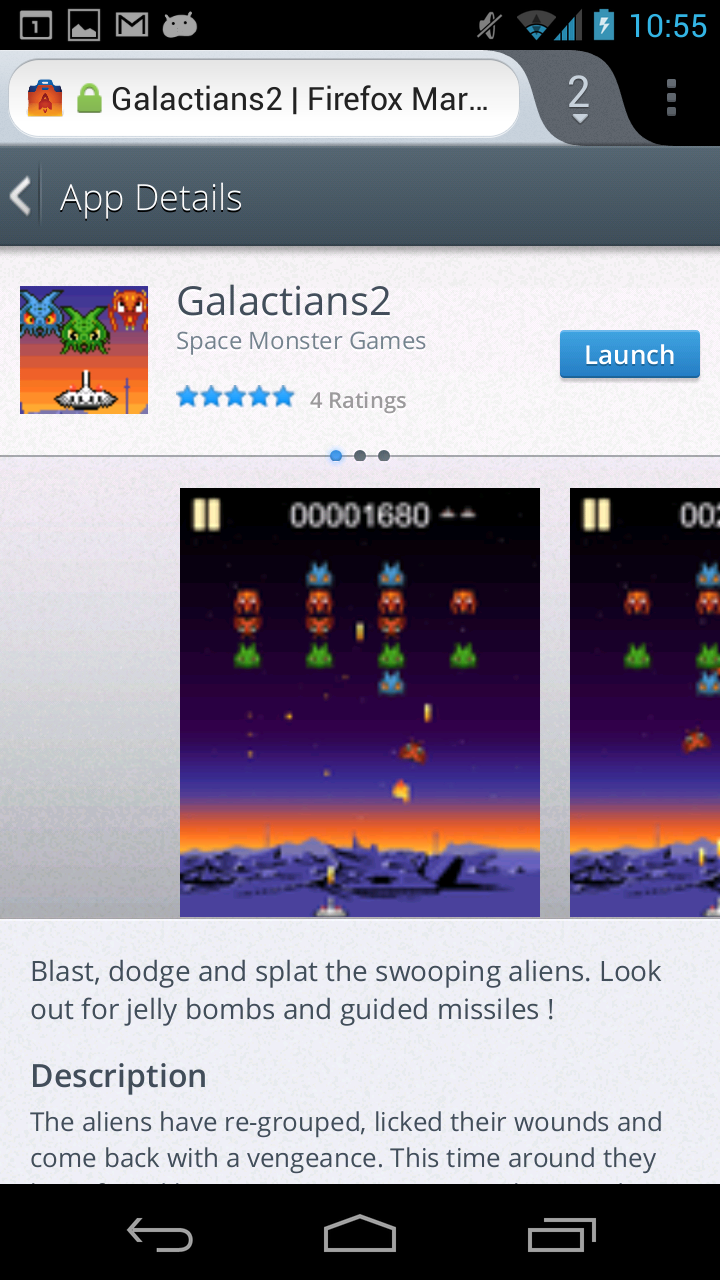
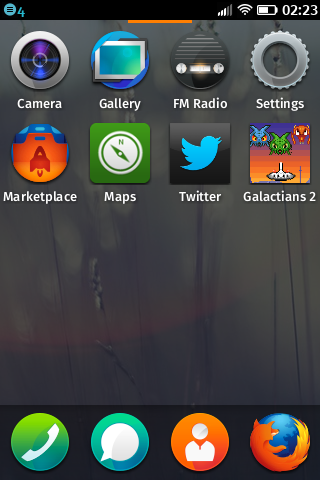
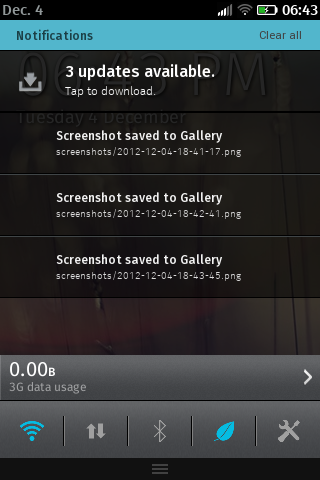
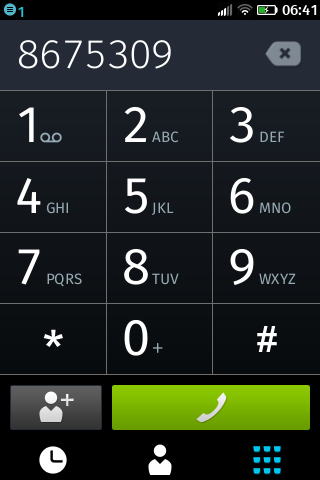
var telephony = navigator.mozTelephony;
// Make an outgoing call
var outgoing = telephony.dial(phoneNumber);
// Receive an incoming call
telephony.incoming = function onincoming(event) {
var incoming = event.call;
// Answer the call
incoming.answer();
};
var wifiManager = navigator.mozWifiManager; // Current network wifiManager.connection.network; // List available networks wifiManager.getNetworks();
// Launch an activity
var activity = new MozActivity({
name: 'share',
data: { type: 'image/png', url: ... }
});
activity.onerror = function() { alert(activity.error.name); };
// Handle an activity request
navigator.mozSetMessageHandler('activity', function(request) {
if (request.source.name === 'share') {
var data = request.source.data;
...
}
});
navigator.mozApps API
(This should look familiar)
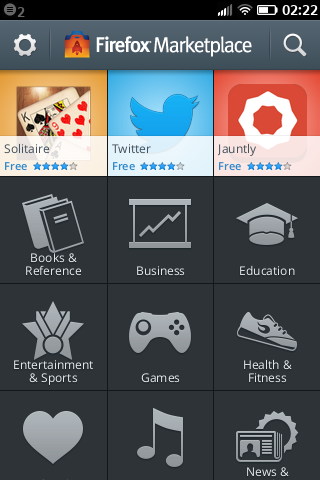
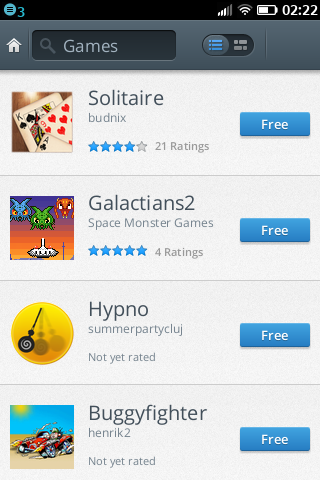
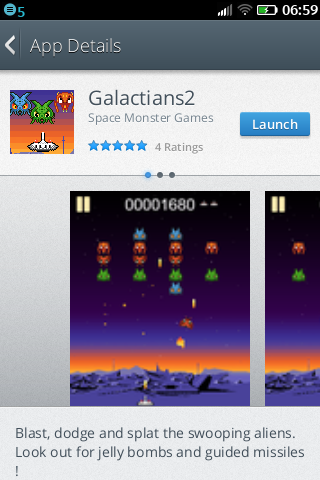
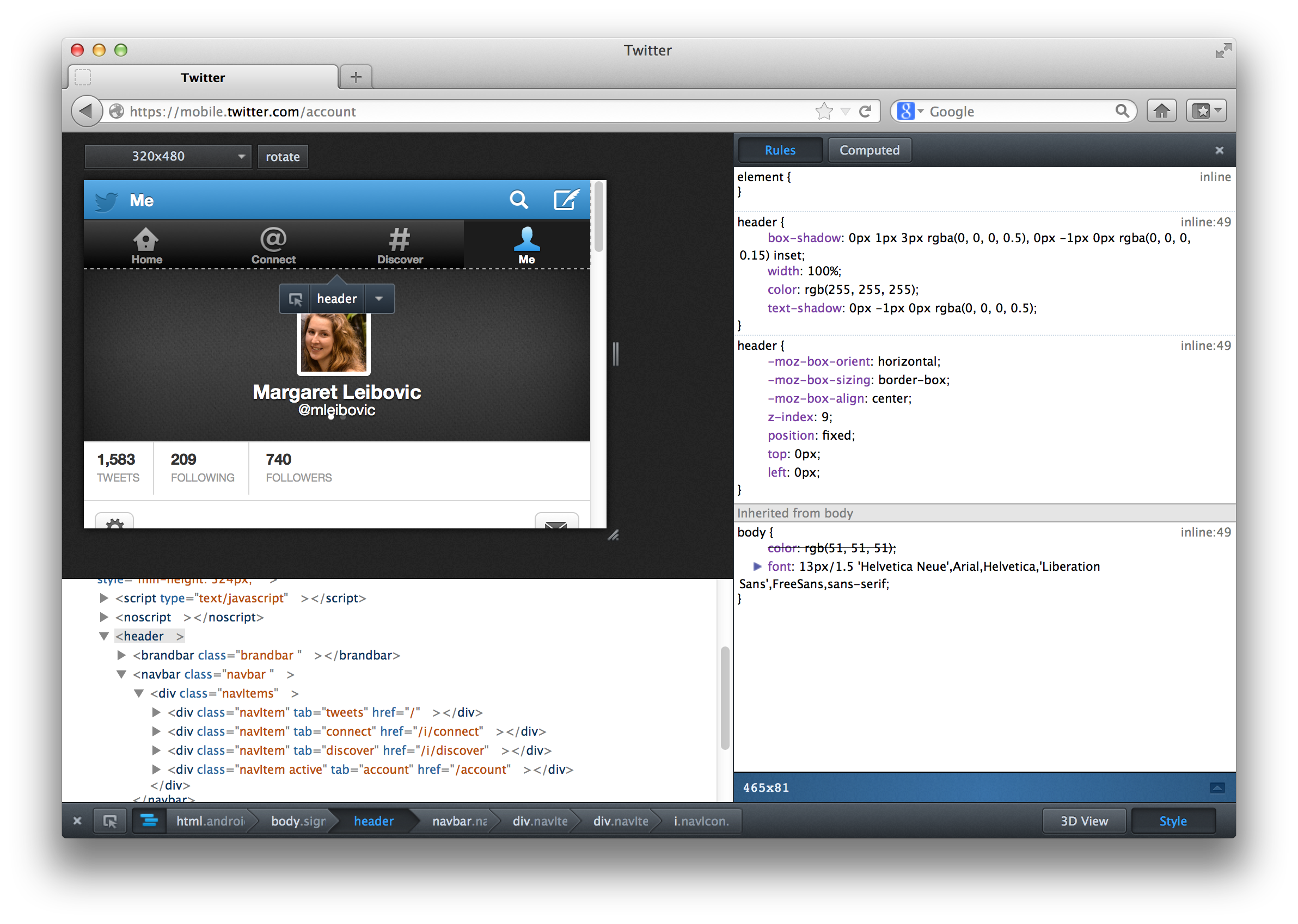
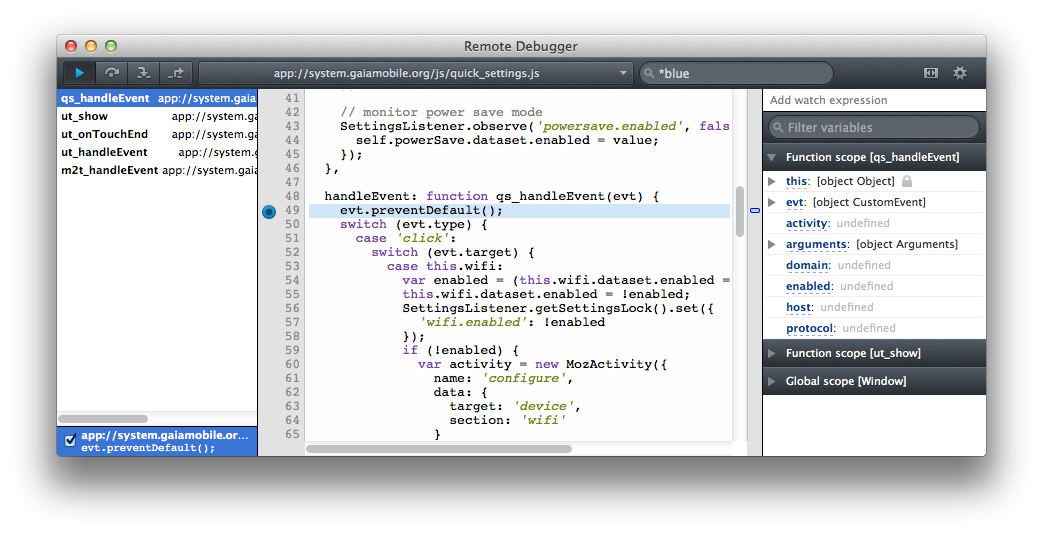
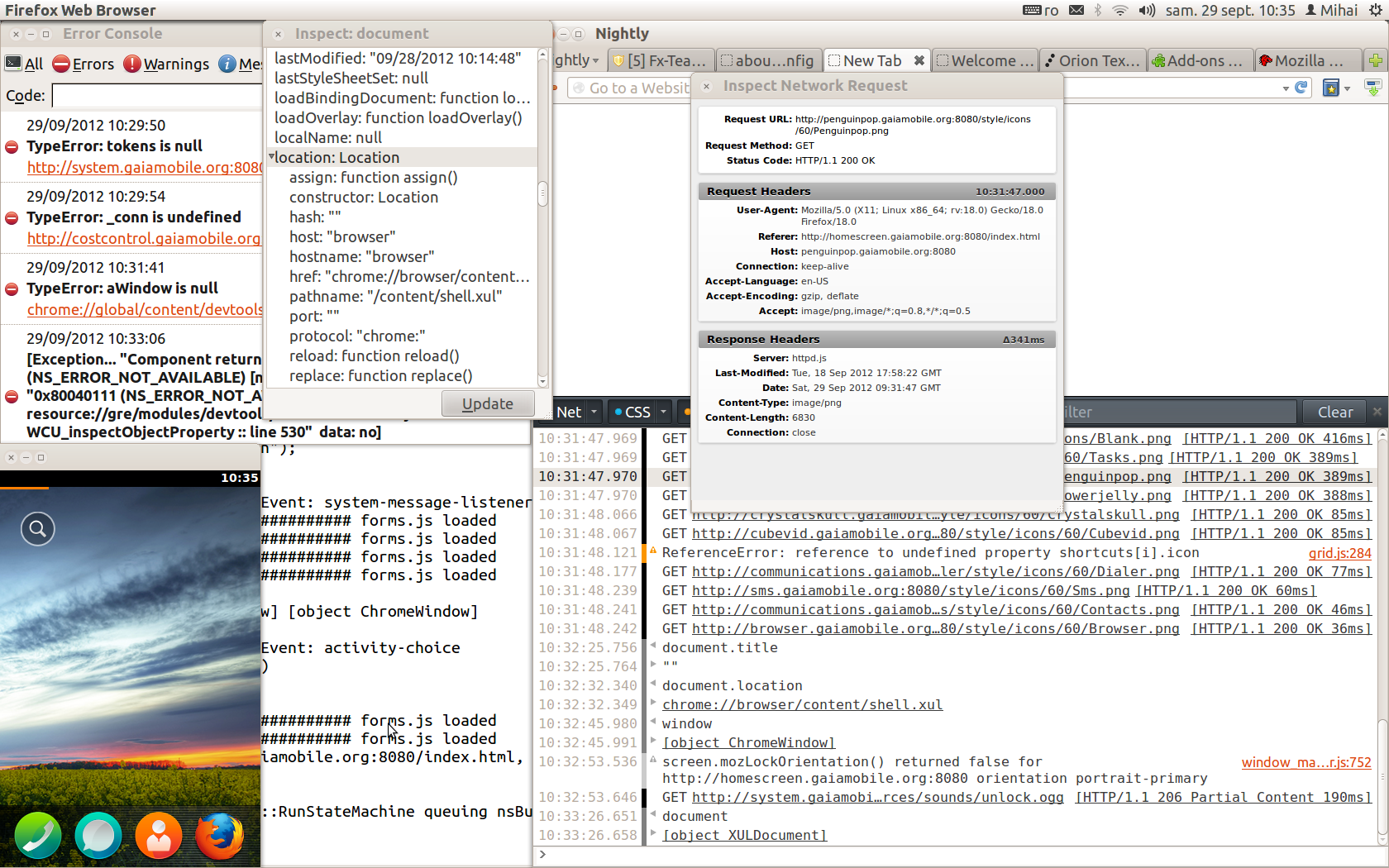
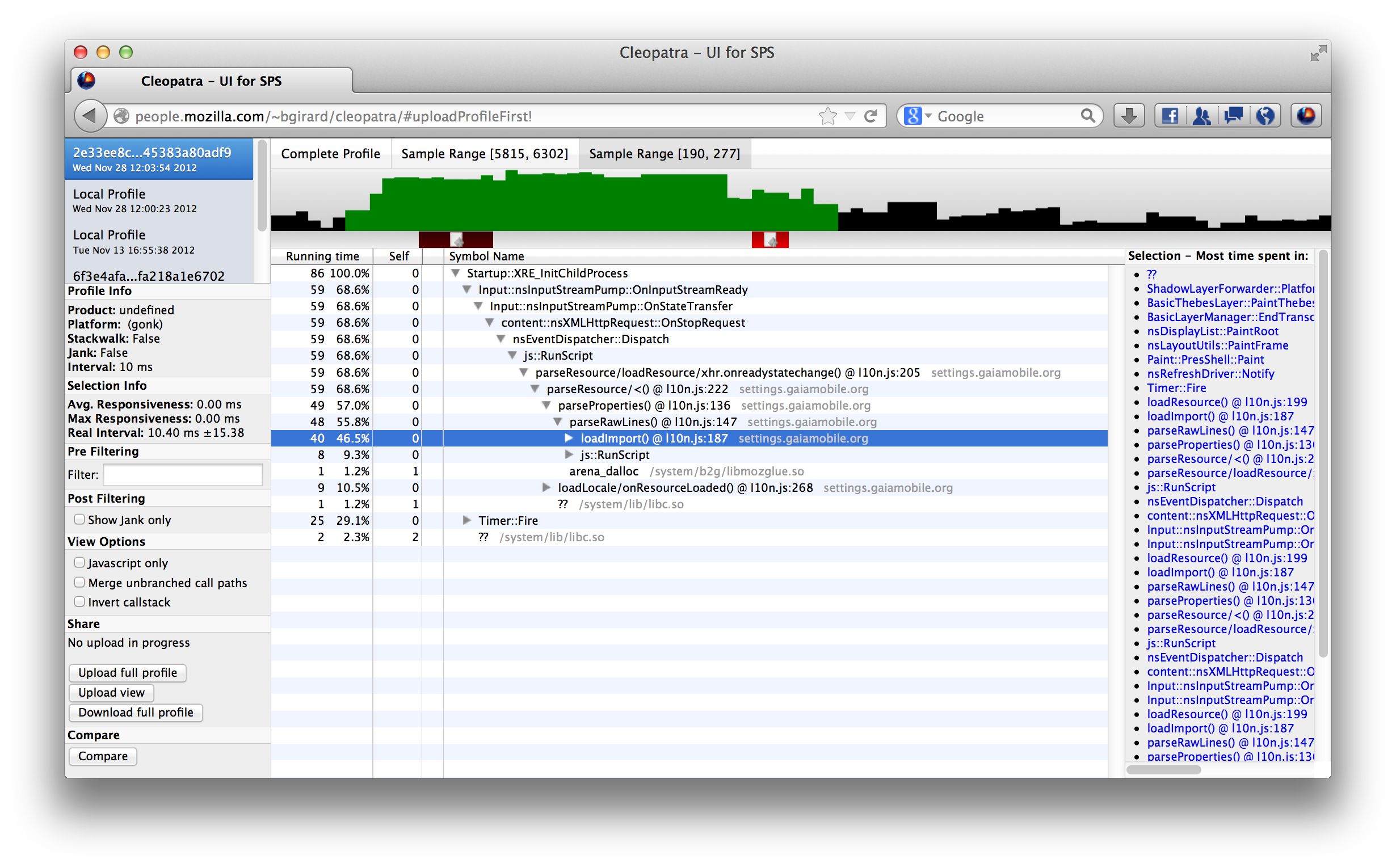
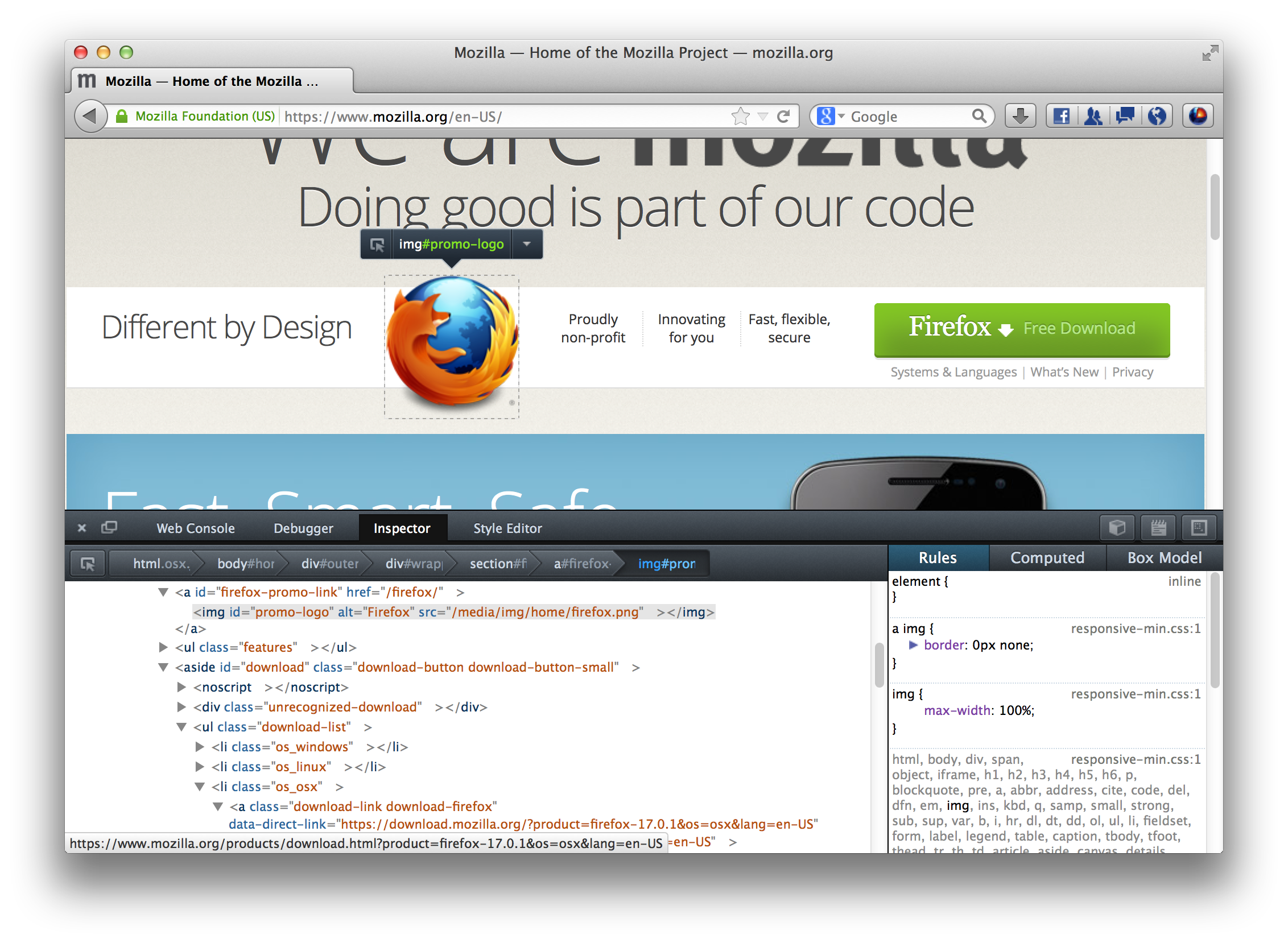
margaret@mozilla.com
http://margaretleibovic.com/talks/mozilla/mobile.html